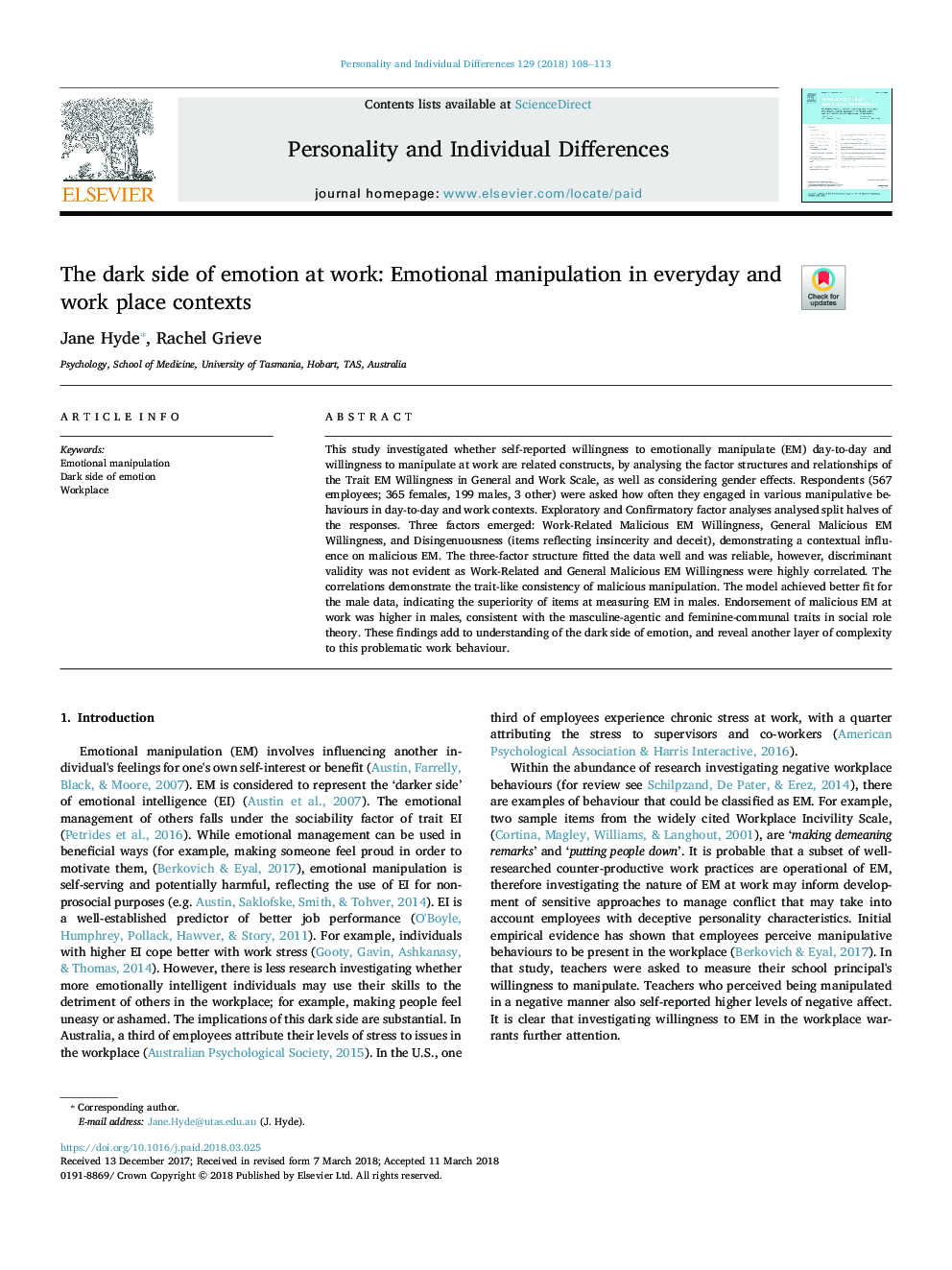| Article ID | Journal | Published Year | Pages | File Type |
|---|---|---|---|---|
| 7248724 | Personality and Individual Differences | 2018 | 6 Pages |
Abstract
This study investigated whether self-reported willingness to emotionally manipulate (EM) day-to-day and willingness to manipulate at work are related constructs, by analysing the factor structures and relationships of the Trait EM Willingness in General and Work Scale, as well as considering gender effects. Respondents (567 employees; 365 females, 199 males, 3 other) were asked how often they engaged in various manipulative behaviours in day-to-day and work contexts. Exploratory and Confirmatory factor analyses analysed split halves of the responses. Three factors emerged: Work-Related Malicious EM Willingness, General Malicious EM Willingness, and Disingenuousness (items reflecting insincerity and deceit), demonstrating a contextual influence on malicious EM. The three-factor structure fitted the data well and was reliable, however, discriminant validity was not evident as Work-Related and General Malicious EM Willingness were highly correlated. The correlations demonstrate the trait-like consistency of malicious manipulation. The model achieved better fit for the male data, indicating the superiority of items at measuring EM in males. Endorsement of malicious EM at work was higher in males, consistent with the masculine-agentic and feminine-communal traits in social role theory. These findings add to understanding of the dark side of emotion, and reveal another layer of complexity to this problematic work behaviour.
Keywords
Related Topics
Life Sciences
Neuroscience
Behavioral Neuroscience
Authors
Jane Hyde, Rachel Grieve,
